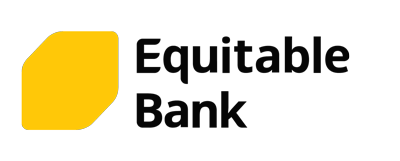
PAID CONTENT
Helping clients better understand the benefits of IFAs
Insurance lending products can, unfortunately, be complicated and confusing for many clients. Immediate Financing Arrangements (IFAs) are a prime example—we’ve found that even sophisticated, high-net worth families often misunderstand the benefits of an IFA. They fail to recognize that insurance lending cannot only boost their insurance coverage, but also bolster their long-term financial goals.
To explain the ins and outs of this lending solution, we’ve compiled a list of common questions and answers to reference in your client conversations.
1) What is an IFA and how does it work?
An IFA is a lending solution that helps clients borrow up to the amount of the insurance premium they’ve already paid. Borrowers must first purchase a permanent (whole) life insurance policy. Then, once they’ve made their first premium payment, they can assign the plan to a third-party lender who advances the funds to them, with the policy’s cash surrender value (CSV) serving as collateral. The borrower is required to service the accrued interest on the loan on a monthly basis. And as subsequent premiums are paid by the borrower, the lender can choose to lend back additional amounts as well.
2) How much money can I actually borrow back?
Generally speaking, IFAs allow you to borrow up to 100% of the client premiums already paid. However, the percentage that’s actually advanced will depend on the lender and circumstance of the individual borrower. Each lender will adjudicate these loans independently based on specific criteria to determine the amount clients will qualify for.
3) Does the lender take ownership of my insurance policy?
No. This is a common misconception, but the lender does not become the policy owner in any way. The actual policy holder, whether it’s an individual or corporation, remains the owner for the life of the IFA. Instead, the lender assumes all the rights of the policy holders, which can be exercised in the event the borrower defaults or the life insured passes away. Assigning the policy as collateral provides security for the lender—and gives clients the peace of mind that they’re policy will remain intact.
4) When does the loan become due?
Lenders may structure their facilities differently, but generally speaking, the outstanding balance becomes due upon the death of the insured party, resulting in the redemption of the policy. And while monthly interest payments are required on an IFA, policy holders do not typically have to pay down the principal loan amount. Since these are open credit facilities, repayments can be made at any time without penalty. That being said, bear in mind that IFAs are also demand credit facilities, which means the lender can demand repayment at anytime, and they can also collapse the policy and recover what is owed through the CSV should the borrower default.
5) What will the beneficiaries receive when the policy is redeemed?
When the loan becomes due upon death, the lender first receives a sum equal to the outstanding balance of the loan. Once that’s paid off, the remainder goes to the beneficiaries. It’s worth emphasizing that the death benefit will always exceed the cumulative total of the premiums—so there’s always residual money to pass on, notwithstanding interest, fees and other incidental charges.
6) Are IFAs only beneficial to ultra-high net worth clients?
Not exactly. IFAs are a complex financial tool, and should only be used by sophisticated clients and their Advisors. However, you don’t need to be an ultra-high net worth to be financially savvy. At Equitable Bank, we view IFAs as a solution that can be used across a wide range of clients and prospects. As a rule of thumb, $100,000 is viewed as the minimum annual premium to qualify for an IFA, but that being said, we review each scenario on a case-by-case basis.
7) What other collateral is required for an IFA?
At Equitable Bank, we only require the policy itself. Many lenders ask that borrowers pledge additional collateral—such as financial or hard assets—to close the gap between the CSV and the loan amount. Our underwriting process is simpler, and more streamlined, to allow Canadians to apply without any extra assets or money down. We’re truly confident in our IFA lending practices.
We hope you can use one or more of these questions and answers to help your clients better understand the merits and benefits of an IFA. These can also be used as conversation starters if you want to proactively broach this topic and ensure a more meaningful and productive discussion. If any additional questions arise, feel free to reach out to us for assistance.
Ready to start the conversation? Follow our step-by-step plan and provide your contact details to learn more. Contact our team at wealthsolutions@eqbank.ca.



